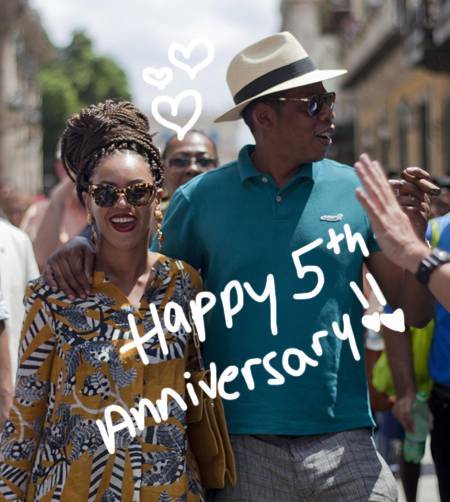
Can someone please tell me why Beyoncé and Jay-Z went to Cuba? The first couple of hip-hop traveled there on their anniversary earlier this month and started a classic “political firestorm.” In my opinion, they gave the Cuban government a huge public relations victory. As soon as photos of the couple walking the streets of Havana hit the Internet, the U.S. embargo took center stage and put many politicians on their heels. Reporters, columnists and TV “talking heads” relentlessly questioned why we have the embargo, which is exactly what the Cuban government wants.
But why did Beyoncé and Jay-Z go? Why flex their considerable celebrity muscles to support a communist island. It makes little sense.
If they were trying to use their fame and fortune to help a political cause, why not support a deserving domestic one? The whole event seems like a misguided stunt, particularly when you compare it to political efforts made in the past by other musicians and celebs.
Rock stars have a long history of political involvement, going back to support of groups like Amnesty International decades ago. The first one that I remember was called Band-Aid. In 1984, some of the biggest names in music gathered in London to record a song to benefit starving children in Ethiopia. “Do They Know It’s Christmas” was the number one song in the U.K. for five weeks and raised millions of dollars for famine relief. The project was the brainchild of Bob Geldof, lead singer of a band relatively unknown in the U.S. called the Boomtown Rats. Geldof parlayed the success of Band-Aid into a huge benefit concert called Live-Aid. His efforts were recognized with a nomination for the Nobel Peace Prize, and he was later knighted. Now Sir Bob Geldof serves as the de facto model for rock star activism.
Not to be outdone, musicians in America started USA for Africa in 1985 and recorded “We Are the World,” also to fight hunger and homelessness in Africa. The effort, whether you like the song or not, raised tens of millions of dollars and helped continue to shine a light on an important world issue.
Band-Aid and Live-Aid also spawned Farm-Aid. Willie Nelson and John Cougar Mellencamp (I get to return the “Cougar” to his name because it’s my blog) spearheaded a concert which raised funds for struggling domestic family farms. Nelson and Mellencamp then brought family farmers before Congress to testify about the state of family farming in America. Congress subsequently passed the Agricultural Credit Act of 1987 to help save family farms from foreclosure. Effective stuff.
More recently, U2 lead singer Bono has been called the world’s best-known philanthropic performer and the most politically effective celebrity of all time. His campaigns for third-world debt relief led to the cancellation of debt for 23 countries, and he regularly meets with world leaders to discuss critical issues like the AIDS pandemic. Time magazine named him Person of the Year in 2005, and he has been nominated for the Nobel Peace Prize three times. Also knighted. Also impressive activism.
Whether you agree or disagree with Bono’s or John Cougar’s political leanings doesn’t really matter, because at least they used their celebrity capital to accomplish something worthwhile. Over the years, big stars from the world of music have proven that they can make a difference for important causes.
So again, can someone please tell me why Beyoncé and Jay-Z went to Cuba?
—John
Author: John P. David


